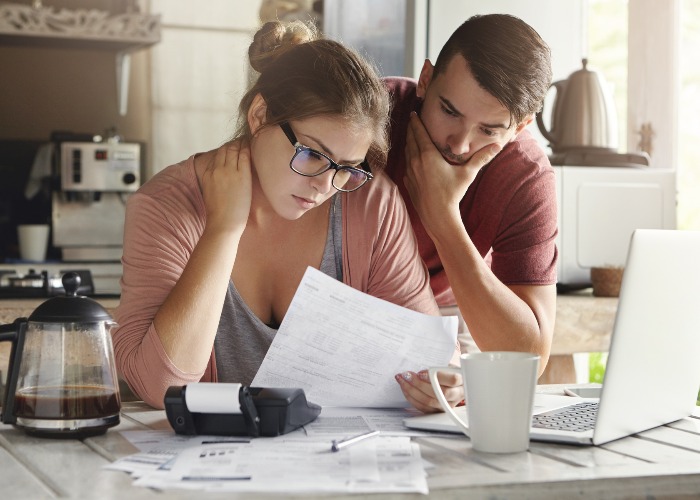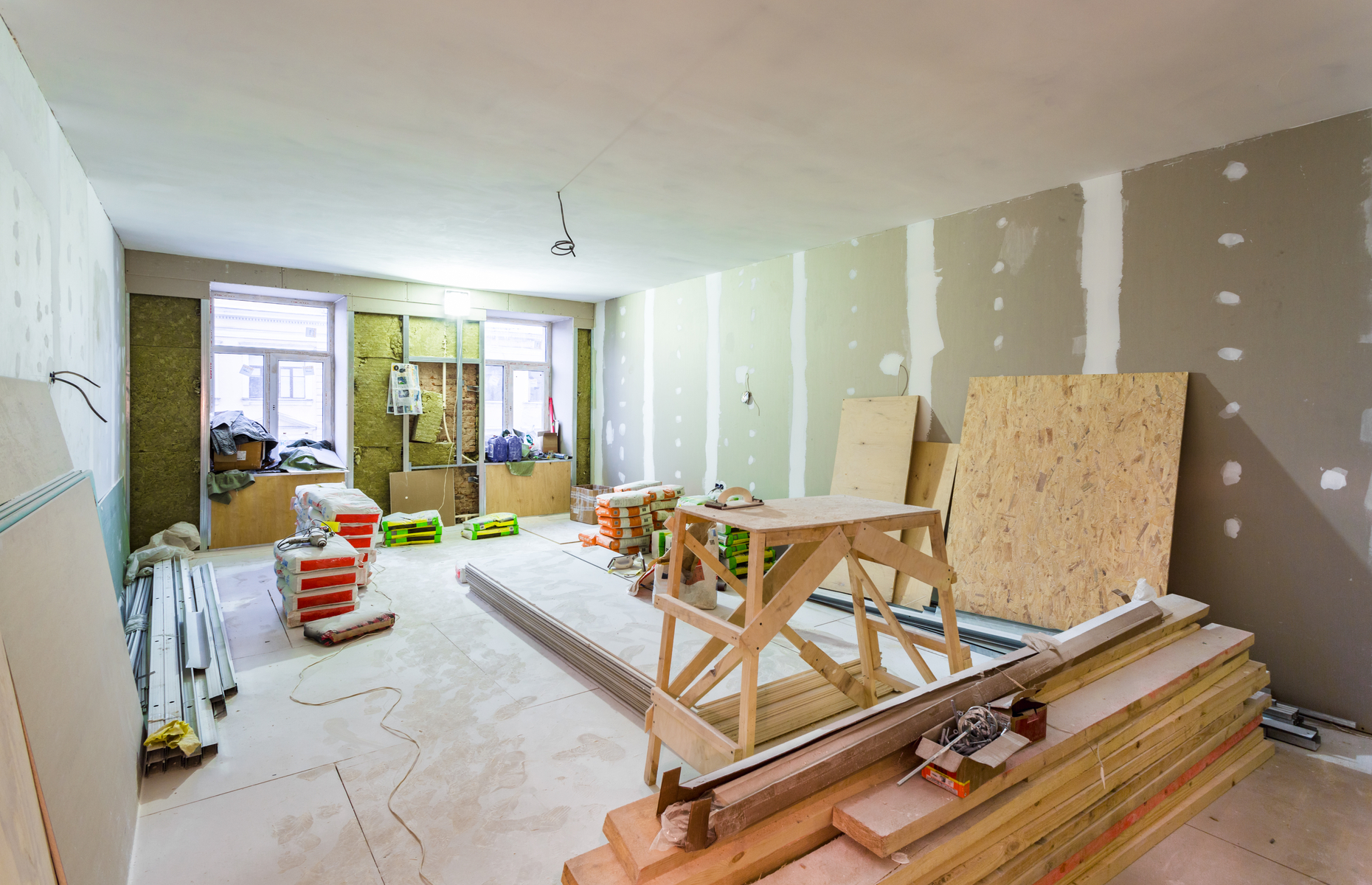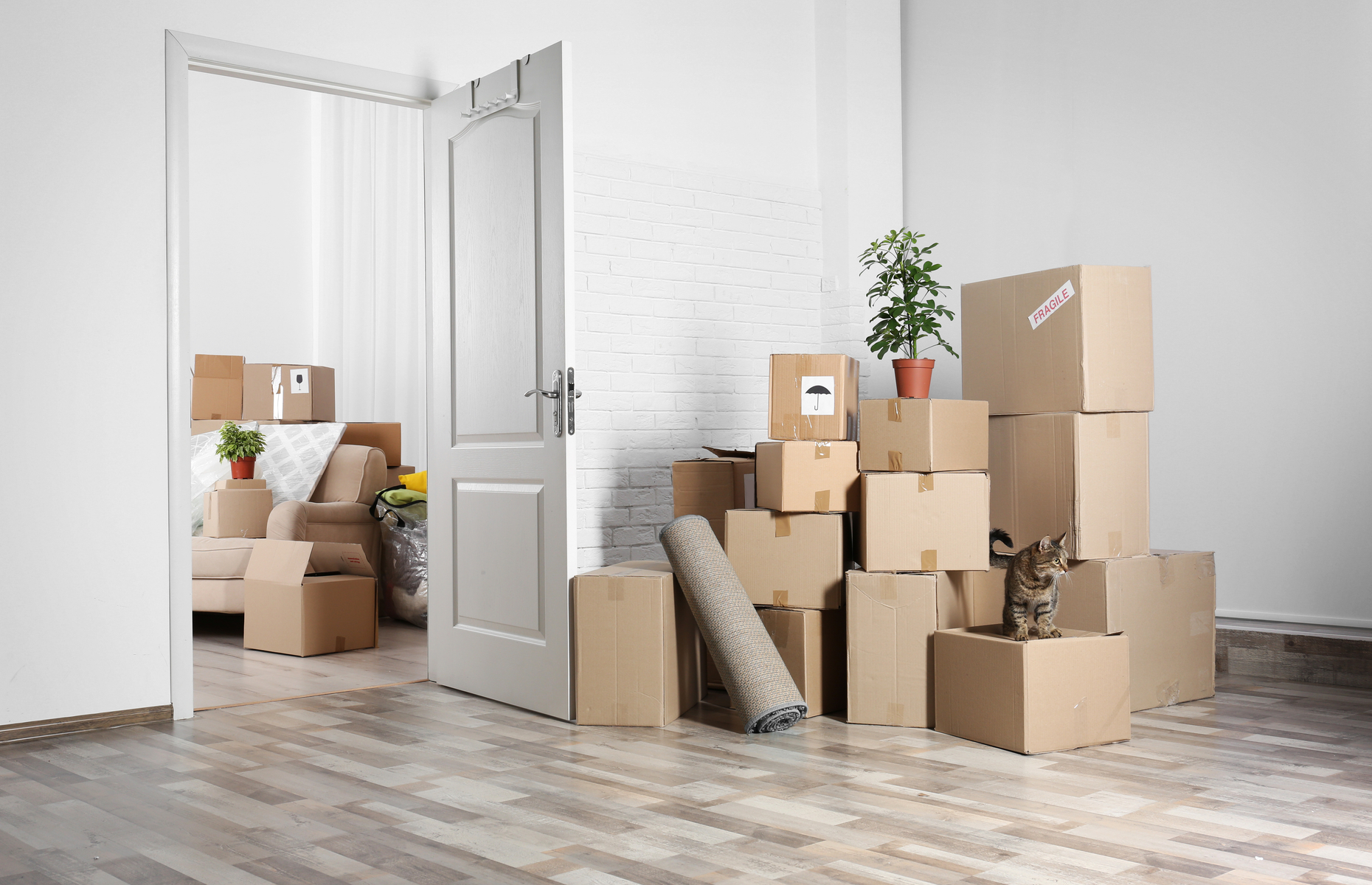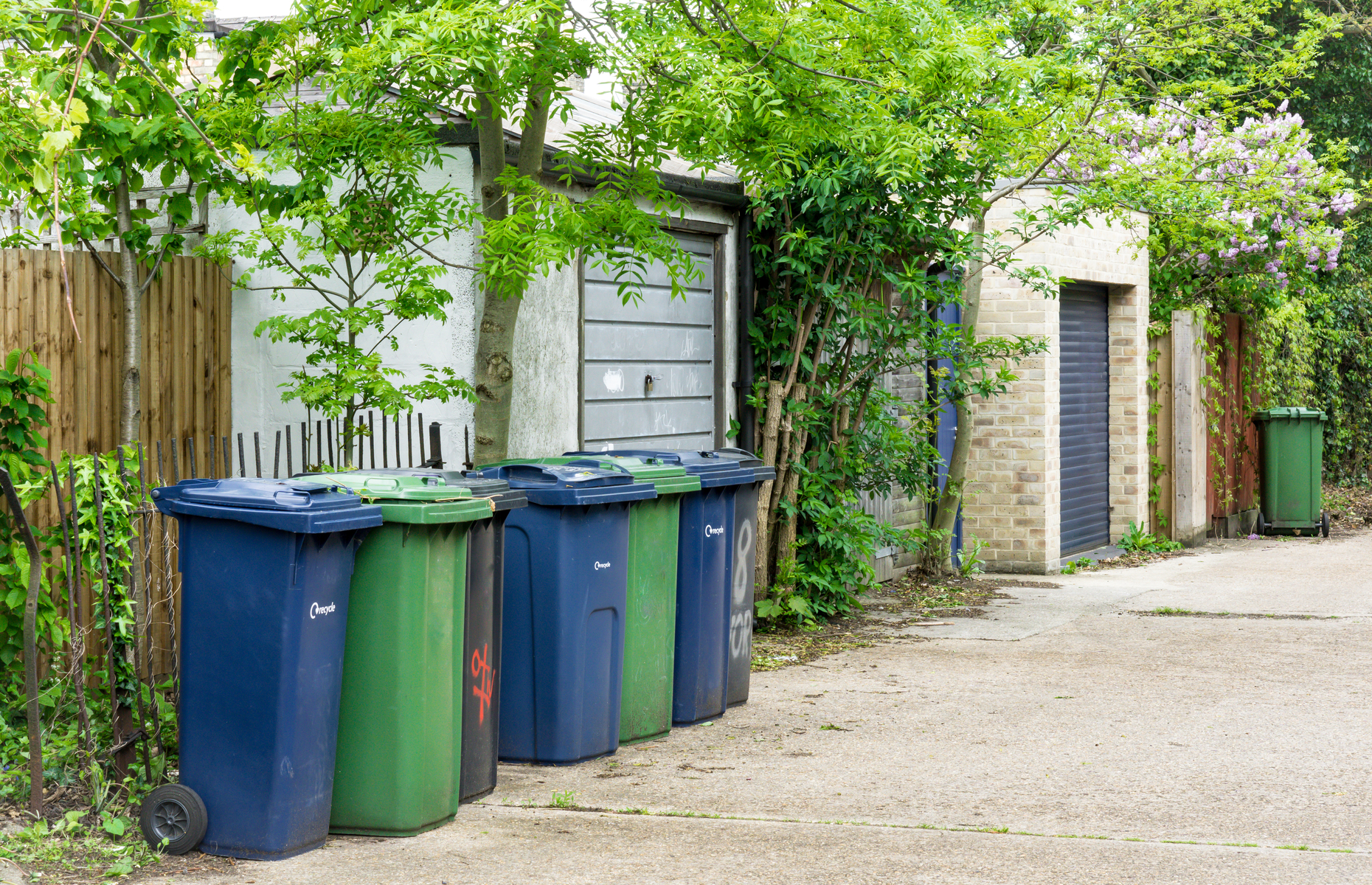10 things homeowners need to know for lockdown

From the lowdown on mortgage holidays and moving house to the costs you can claim back
With most of the country officially in lockdown once more, many homeowners may be wondering how to navigate the weeks and months ahead.
READ MORE: Most dangerous DIY projects to avoid during lockdown
We've rounded up the ten key points you need to know, from how restrictions will affect your property to the financial support available at this tricky time.
1. Maintenance work and repairs
If you’ve got a burst pipe or need your fence repaired, you might assume you have to put up with it until lockdown is over.
However, according to guidance from authorities, these kinds of urgent jobs can continue provided no one from the household has symptoms of coronavirus.
Strict rules must be in place to protect residents and tradespeople: all parties must respect social distancing, ensure good ventilation is maintained and frequently touched surfaces are cleaned.
The situation is not so simple if you are in one of the at-risk categories. The official stance from the UK Government in these cases is that: “No work should be carried out in any household which is isolating or where an individual is being shielded, unless it is to remedy a direct risk to the safety of the household."
The devolved governments in Wales, Scotland and Northern Ireland each have specific guidance for tradespeople to follow when working in other people's homes.
2. Home renovations
Many of us may be tempted to use the time at home to plan home renovations and the good news is that your project can still go ahead.
On 11 January 2021, the Secretary of State for Business, Energy and Industrial Strategy wrote to those working in the UK construction sector to confirm that firms and tradespeople in the industry should continue to operate during lockdown 'on large or small construction sites, and in peoples' homes across the country'.

Nevertheless, precautions should still be taken to limit contact between construction workers and homeowners, with social distancing and strict hygiene practices in place at all times.
3. Moving house
The housing markets across all four nations of the UK will remain open during the latest lockdown. This means house moves can proceed and homeowners and renters are free to view properties to move into in the future, as long as this can be done safely.
Virtual viewings are encouraged, as is vacating your current property prior to in-person viewings and maintaining two metres of distance from other parties. Surveyors are also permitted to carry out assessments provided they follow distancing measures.
When it comes to the move, you're free to seek the services of a removals company, but it's recommended that you pack as many of your belongings as possible yourself.

Where a member of a household is self-isolating or tests positive for coronavirus, completion dates or rental contract start dates may have to be revised until 10 days after their symptoms started.
Full guidance on house moves is available on the UK Government website, as well as the Scottish, Welsh, and Northern Irish Government websites too.
4. Paying mortgages
If you’re worried about keeping up mortgage payments due to loss of earnings or financial instability then you can still apply for a six-month mortgage holiday with your lender.
To date, over a million mortgage holidays have been approved and even those who are in arrears with their mortgage payments are eligible to apply.
This scheme had been due to end at the end of October 2020, but banks have now agreed to extend this to 31 March 2021.
Homeowners have until this date to apply to temporarily stop making their mortgage payments, with the deferral period itself ending on 31 July 2021. Borrowers can have a total of six months of deferred payments, but they don't have to be consecutive.
It is important to note though that your mortgage will still accrue interest during this time so you will end up paying a little more in the long run.
5. Home insurance
As with any major change of circumstances, it’s imperative that you read your insurance policy closely during this time to ensure you are still covered. For instance, does your home insurance cover you for working from home?
Some insurance companies, including Axa and LV=, say their customers are covered, but if you have especially expensive equipment that you use for work that is not usually in your home, you might want to check that it is protected in the case of accidental damage.

However, the biggest issue when it comes to insurance is if you are spending lockdown somewhere other than your home. If your property is left unoccupied for 30-60 days, there’s a good chance that this will void your home insurance.
It is possible to buy unoccupied home insurance to cover your property though, plus the Financial Conduct Authority made it clear to insurance companies last year that it expects them to show flexibility and to consider claims made by customers “impacted by circumstances over which they have little control”.
6. Working from home
If you are able to work from a home office or makeshift setup during lockdown then you could claim back some of the expenses incurred by claiming tax relief.
Covered expenses include household bills such as gas and electricity, home contents insurance, business calls or a new broadband connection.
You can get up to £6 per week tax-free to cover these extra costs while working at home. However, the rebate only covers costs that are solely work-related – rent and council tax cannot be claimed against.
For more details on whether you're eligible and how you can make a claim, visit the UK Government website.
7. Council tax
If you live in England and you’re really struggling to make ends meet at the moment then you could apply for council tax relief, although it's important to be aware that the Government’s £500 million hardship fund is meant for the most vulnerable.

The fund is initially aimed at anyone of working age who is in receipt of Local Council Tax Support, but councils will also be able to provide relief to other people at their discretion, such as those receiving welfare, to help reduce council tax for 2020-2021 for lower-income families.
While the current council tax period will end in April 2021, the Government is putting forward proposals for a Local Government COVID Support Package for 2021-2022 that may provide more support in England moving forward.
Authorities in Scotland, Wales and Northern Ireland also have support schemes in place to help with council tax payments and household bills.
8. Household bills
In addition to other payment holidays and financial schemes, the Government announced new emergency measures back in March 2020 to protect the most vulnerable when it comes to their domestic energy bills.
UK customers with pre-payment meters who can’t afford to top up can speak to their supplier about the options available to them, something the Government says could help over four million customers.
In addition, anyone who is worried about being able to pay their energy bill can discuss reassessing, pausing or reducing payments with their supplier, while the disconnection of credit meters will be completely suspended.
In addition, Thames Water is just one water supplier that says it is committed to providing options for customers worried about paying their bills, including temporary financial support.
9. Bin collection

With reduced staff numbers due to coronavirus and poor road conditions in certain regions, some councils are operating with delays to their usual schedules.
For those having to self-isolate, the Government has advised that personal waste, such as tissues and disposable cleaning cloths, should be placed in a separate bin bag and left for 72 hours before being put into your household waste bin.
If you’re worried about changes to your service, contact your local council, or you can visit the Government’s dedicated website to get updates on the service in your area.
10. Parking
Though most of us are using our cars much less right now, if you do need to pop out to a doctor’s appointment or to the supermarket, you may find that parking restrictions that are normally in place have been relaxed in some areas.
Parking rules were suspended in many places during the first lockdown back in March last year, and some authorities are once again choosing to lift fees.
This could even benefit you at home if you usually pay for a parking permit, so it’s worth checking your local council’s policy via their website.
READ MORE: 25 positive home changes that will stick after coronavirus
Featured image: WAYHOME studio / Shutterstock
Comments
Be the first to comment
Do you want to comment on this article? You need to be signed in for this feature